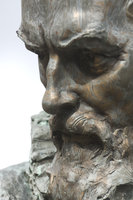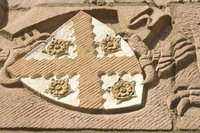 Responsibilities & Conduct of Court Members
Responsibilities & Conduct of Court Members
Whilst key officer holders have clearly defined roles and areas of responsibility, there are also responsibilities and standards of conduct expected of all members of Court.
Impartiality
All members of the Court, whatever their category of membership, have an important part to play in its work, bringing to bear knowledge and experience from their own background to advance the interests of the University. It is central to the proper conduct of public business that all members of the Court, including the Chairman and the members nominated by particular constituencies, should act and be perceived to act impartially and in the best interests of the University as a whole, and should not be influenced in their conduct as members of Court by social or business relationships, or by any other affiliation.
Objective/Collective/Detached
All members should consider the issues before them objectively and as a governor of the institution rather than as a representative of any other group, and all decisions of the Court will be regarded as collective decisions taken by the members acting as a body. Like the Chairman, lay members must also take care not to become involved in the day-to-day executive management of the institution. As Court members, this also applies to the staff and student members of the Court, except that in the course of their employment or, in the case of student members, in their activities as students, they may have executive responsibilities of some kind within the institution.
Confidentiality
It is essential that all Court members respect the confidentiality of sensitive information held by the body, within the parameters of the Freedom of Information (Scotland) Act 2002. This includes commercially sensitive information, personal information and information received in confidence by the organisation. It is also essential that debate inside the Court meeting room is not reported outside it.
There may be times when members will be required to treat discussions, documents or other information relating to the work of the University in a confidential manner. They may receive information of a private or commercially sensitive nature which is not yet public, or which is not intended to be made public. There are provisions in Court papers or documents on confidential information and members must always respect and comply with the requirement to keep such information private.
It is unacceptable to disclose any information to which members have privileged access, for example derived from a confidential document, either orally or in writing. In the case of other documents and information, members are requested to exercise their judgement as to what should or should not be made available to outside bodies or individuals. In any event, such information should never be used for the purpose of personal or financial gain, or used in such a way as to bring the University into disrepute.
Conduct of Business
 Members of Court have a responsibility to set an example by demonstrating the highest standards of behaviour. They should never publicly criticise the organisation or fellow Court members. They must not attempt to undermine Court decisions or distance themselves from these outwith Court meetings. It is important that nothing members do or say, whether acting in their capacity as a Court member or in a business or private capacity, should in any way tarnish the reputation of the University or the Court.
Members of Court have a responsibility to set an example by demonstrating the highest standards of behaviour. They should never publicly criticise the organisation or fellow Court members. They must not attempt to undermine Court decisions or distance themselves from these outwith Court meetings. It is important that nothing members do or say, whether acting in their capacity as a Court member or in a business or private capacity, should in any way tarnish the reputation of the University or the Court.
Standards of Behaviour
To conduct the University's business effectively, we will foster and reinforce relationships of confidence and trust between the Principal, the Chairman and members of Court and share information freely. The seven principles of public life, defined by the Committees on Standards in Public Life, form the basis on which the University conducts its affairs. The seven principles are:
Selflessness
You should take decisions solely in terms of the public interest. You should not do so in order to gain financial or other material benefits for yourself, your family, or your friends.
Integrity
You should not place yourself under any financial or other obligation to outside individuals or organisations that might influence you in the performance of your official duties.
Objectivity
In carrying out public business, including making public appointments, awarding contracts, or recommending individuals for rewards and benefits, you should make choices on merit.
Accountability
You are accountable for your decisions and actions to the public and must submit yourself to whatever scrutiny is appropriate to your office.
Openness
You should be as open as possible about all the decisions and actions that you take. If required, you should be able to give reasons for your decisions and restrict information only when the wider public interest clearly demands.
Honesty
You have a duty to declare any private interests relating to your public duties and to take steps to resolve any conflicts arising in a way that protects the public interest.
Leadership
You should promote and support these principles by leadership and example.
The Court decided at its meeting in June 2002 to include two additional principles from the Model Code of Conduct approved by the Scottish Parliament's Ethical Standards in Public Life (Scotland) Act 2000, Part 1, Section 2. They are:
Public Service
You have a duty to act in the interests of the public body of which you are a member and in accordance with the core tasks of that body.
Respect
You must respect fellow members of your public body and employees of the body and the role they play, treating them with courtesy at all times.
 In practical terms these principles require members of Court to observe the highest standards of integrity, objectivity and honesty in all business. The Court follows a policy of openness and transparency. Regular reports of Court and Academic Board meetings are posted on the University's intranet for all staff to read, and the minutes of the Court and its Committees are open to enquirers under the Freedom of Information (Scotland) Act 2002, subject to very limited exemption of confidential matters.
In practical terms these principles require members of Court to observe the highest standards of integrity, objectivity and honesty in all business. The Court follows a policy of openness and transparency. Regular reports of Court and Academic Board meetings are posted on the University's intranet for all staff to read, and the minutes of the Court and its Committees are open to enquirers under the Freedom of Information (Scotland) Act 2002, subject to very limited exemption of confidential matters.
Making Public Statements
Court members must be aware that, when writing or speaking on any matter related to the University, they might be perceived to be representing the Court - even when they think you are writing or speaking as a private citizen, or as a professional. Any (mis)perception that they are speaking in their capacity as a Court member, can lead to embarrassment and distress for both them and their fellow Court members. Being a Court member imposes certain restrictions on what they can say and to whom. It is essential good practice to clear articles or speeches on any subject matter which is at all relevant to the Court or the University, with the Chairman or Principal in advance. If members are approached by the media, it is good practice to leave such responses to the Chairman, Principal or other designated officer of the University.
Annual Review
The Chairman of Court conducts an annual review with each lay member of the contribution that they believe they have made to the Court in the past year, and intend to make in the coming year. These reviews will normally take the form of a self-assessment, followed if necessary by informal dialogue on issues arising. The main purpose is to ensure that members' knowledge and experience is drawn upon to best effect, for the benefit of the University and their individual satisfaction. The process should be supportive and developmental. It should not be regarded as a formal or judgmental system of appraisal.